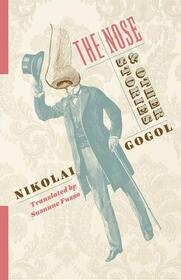
Often in these stories, the author uses Russian folklore and supernatural elements to explore class distinctions and Nationalist mindset. They can certainly be read for entertainment on the surface level, but like all worthy literature, there is much going on underneath that rewards analysis. Take, for example, "The Portrait," which invites comparison with Wilde's The Picture of Dorian Gray, but in my estimation Gogol's tale is more complex and less moralistic. As a young painter takes money found in the frame of a demonic portrait and his drive as an artist suffers as a result, there is more at work in the writing and intention than a simple cause-and-effect parable.
His life was reaching the years when everything that breathes of impulse begins to shrink within a person, when the powerful violin bow reaches the soul more faintly and does not twine about the heart with piercing sounds, when contact with beauty no longer transforms virginal powers into fire and flame, but all the burned-out feelings become more open to the sound of gold, listen more attentively to its alluring music, and little by little, imperceptibly, allow it to put them completely to sleep.
Indeed, I found myself with more than a dozen quotations jotted down by the time I finished the collection, which is fairly impressive. Many of these sentences illustrated Gogol's winking sense of humor, which I greatly appreciated. Often, the comedy is grounded in the societal social order and class system that make some citizens "important" and others "valueless" based on their title or lack of one. There is this gem from "The Carriage," about a mid-level army lieutenant who brags about the quality of his horse-drawn cart to such an extent that his colleagues catch him by surprise when they request a visit:
Chertokutsky, despite all his aristocratism, bent so far over in his carriage and with such a sweep of his head that when he got home he brought with him two burrs in his mustache.
Translator Fusso also meticulously annotates the text to define and explain the many Russian cultural, political, and geographical references. If, like me, you're new to Nikolai Gogol's writing (or if you would like to revisit his work in a new translation), this is a great place to start. I received an advance reading copy via NetGalley in exchange for a forthright review.
 RSS Feed
RSS Feed